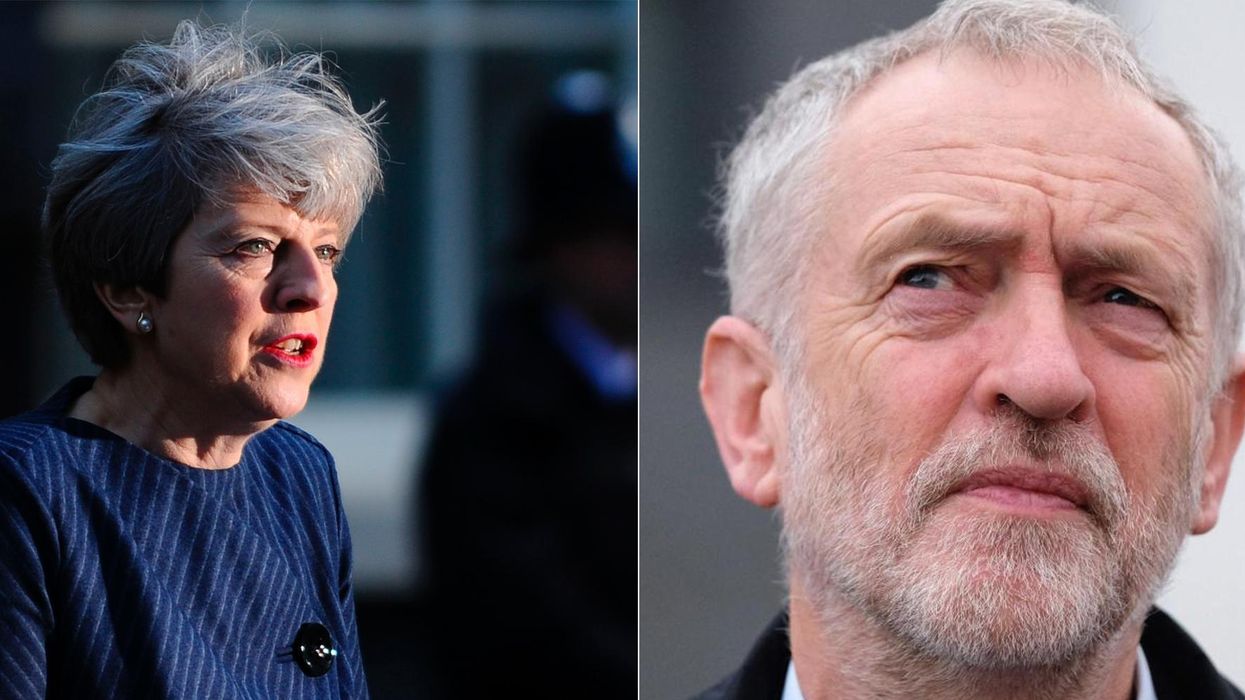Louis Dor
Apr 18, 2017

Picture:
AFP
Theresa May this morning called for a general election on 8 June, calling for a vote in the House of Commons to overrule the fixed term parliaments act.
She acknowledged this statement went against all the times she said she wouldn't call a snap election.
Her argument hinged on Brexit. She claimed she couldn't lead through the Brexit process due to disunity in Westminster. She positioned herself as above the games of Westminster politicians, calling an election for the benefit of the people, for the well-known "will of the people" in Brexit.
She said that she couldn't risk a Brexit process hampered by the opposition and House of Lords, that:
division in Westminster will risk our ability to make a success of Brexit.
This is absolute rubbish. Opposition parties are supposed to scrutinise legislation.
Jeremy Corbyn didn't achieve any amendments to the Brexit bill in the House of Commons and the House of Lords didn't vote it down.
Theresa May is a hawkish politician through and through, and she as well as anyone can see a 20 point gap in the polls as an opportunity to win a landslide election.
In her speech she already started campaigning, pouncing on the weakness of Jeremy Corbyn's leadership as a campaign point:
The decision facing the country will be all about leadership.
It will be a choice between strong and stable leadership in the national interest, with me as your Prime Minister, or weak and unstable coalition government, led by Jeremy Corbyn, propped up by the Liberal Democrats - who want to reopen the divisions of the referendum - and Nicola Sturgeon and the SNP.
It's a bit rich for her to warn against a coalition government propped up by Lib Dems. But, anyway.
This is the real reason she's calling an election:
Jeremy Corbyn is pulling the worst voting intention figures for the Labour Party since Gordon Brown in 2009:
Theresa May is overwhelmingly seen as a better Prime Minister, across every demographic other than Labour voters - who themselves are on the fence:
And while May's leadership has seen a boost in the polls for her party, Jeremy Corbyn has overseen a slump...
Mr Corbyn's approvals are terrible, even at a mid-parliament point when opposition parties are usually in the ascendancy:
She's pitched it as an election over Brexit, about which party can best deliver it, because she knows no-one trusts Labour when it comes to Brexit:
Labour leader Jeremy Corbyn attempted to shift the focus to policies in his response to the announcement:
I welcome the Prime Minister’s decision to give the British people the chance to vote for a government that will put the interests of the majority first.
Labour will be offering the country an effective alternative to a government that has failed to rebuild the economy, delivered falling living standards and damaging cuts to our schools and NHS.
In the last couple of weeks, Labour has set out policies that offer a clear and credible choice for the country. We look forward to showing how Labour will stand up for the people of Britain.
You'll note that there is no mention of Brexit in that statement.
More: How Labour is failing under Jeremy Corbyn, in 8 charts
Top 100
The Conversation (0)













